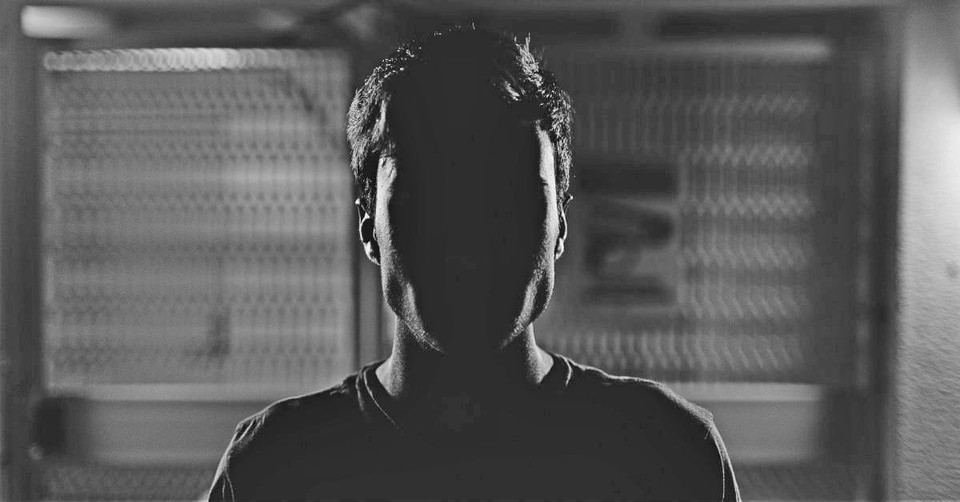4 Characteristics of a False Convert

Over the years I’ve seen that one of the most powerful moments in a new believer’s life is the realization that there is such a thing as a false convert. The sudden realization that salvation is not dependent on a prayer, a baptism or family history propels true believers to a whole other dimension in their walk with Christ. They begin to examine themselves properly (2 Cor 13:5), they become more evangelistic, they care more about theology and they appreciate being at church so much more. Understanding the fact that false converts are a reality is so important for those who call themselves Christians.
As we saw last week, there are few things more disappointing than when someone from our church walks away from the Lord. Especially when you’ve spent countless hours not only teaching and discipling that person, but you have shared a myriad of hours of ministry with him.
Maybe at some point in the grieving process, you will wonder why you weren’t able to tell that he was a false convert. Maybe you question your ability to discern over the fact that you were unable to tell, and you are beating yourself over the head.
Philip was one of the first deacons in the Church. He was selected by the disciples to be one of the seven to serve the tables in Acts 6:1-6, and he went on to becomes an incredible evangelist soon after that. In fact, when Stephen was martyred, Philip was the one who was sent to Samaria and Judea in order to spread the Gospel past the confines of Jerusalem. And we see that the Lord used him greatly. But, what we also see is the first false convert. Simon, the magician, was a man whom the people practically worshiped. He was able to do incredible tricks that caused the people to say to themselves, “This man has what is called the Great Power of God.” When Philip showed up, the Bible tells us that 1) he believed, 2) he was baptized, and 3) he continued on with Philip. As soon as Peter and John showed up, though, we realize that Simon was a false convert and we are left wondering how did Philip miss it? Perhaps Philip was left wondering how he missed it as well.
Of course, no amount of time spent discipling people is wasted time, but there is a sense in which we want to use our time wisely and be able to water where the grass is green, rather than spend our time watering dead grass. Is there a way to tell? Is there a way to be able to recognize the sheep from among the goats in this life? Well, Simon had four red flags that Luke points out in the short story of Acts 8:9-24 which we can apply to all false converts. These don’t encompass all the red flags, but they are a helpful start. So, here are four characteristics of a false convert.
1. They are man-centered
In other words, they like to be exalted by others. They are all about seeking attention and wanting to be noticed.
Notice an important statement in Acts 8:9. Simon claimed to be someone great. Simon was all about exalting himself and stealing from God’s glory. In fact, the people’s response was to exalt Simon to worship-like status, claiming that he had the power of God. When Philip showed up with real miracles rather than tricks, Simon decided to hop on the bandwagon, hoping to retain the influence he had worked so hard to establish. He was absolutely obsessed with his image.
False converts don’t truly love God and don’t care if He ultimately receives the glory from their life; rather, they are simply after the cheap thrills of recognition and attention. A lack of love for God’s glory shows up in a lack of evangelism, and a lack of speaking about God at all. Those who are man-centered only care about how God can affect them and improve their life and aren’t interested in picking up a cross to follow Christ (Luke 9:23).
2. They are not devoted to Jesus
Simon seemed to just go through the motions in Acts 8. As we’ve already seen, he was simply after holding on to his influence and adapting to what the culture around him wanted. Most people in his cult were giving their lives to Jesus, and so, in order to fit in, he also sought to accept Christ. He didn’t truly love Jesus, he simply wanted Jesus to give him what he ultimately sought– the desires of his carnal heart. He completely misunderstood salvation. I mean, he did it all: he believed, was baptized, and followed Philip.
But, as we know, salvation is not actions, but rather, it is a heart change that God does to a person. Ultimately it takes Peter one conversation to realize that this man hadn’t truly been saved. False converts completely misunderstand salvation and think that it is through their actions that they are saved. They might say that salvation is not through works with their lips, but their hearts declare something completely different. They don’t truly love Jesus in their hearts and are only after the benefits of what Jesus can bring to their life.
3. They have a selfish attitude
This is where Simon’s motives become clear. Acts 8:18-19 shows us Simon’s heart. He offered Peter and John money to be able to have the Holy Spirit and do the miracles that they were doing. Of course, this is silly to us and shows us a deep misunderstanding of how the Holy Spirit works. But, if we go beyond the surface, we will notice an even greater red flag.
Notice why he wanted the spiritual gifts. He wanted spiritual gifts so that he could be noticed and feel good about himself. He had completely selfish reasons for them. But, a simple reading of the New Testament will teach us that spiritual gifts are only given to us to be able to serve those around us. Their only goal is to serve the other members of the Church.
Today, so many churches promote certain spiritual gifts as more important than the others, and they also encourage those in their congregations to experiment with spiritual gifts that were not intended for them. Even if they do so unintentionally, they are setting up their congregations to see spiritual gifts as a way to promote themselves in front of the eyes of the church. This is a complete misunderstanding of spiritual gifts and it shows a love-of-self that is dangerous at best.
Christ, on the other hand, teaches his disciples that in order to be great one must be willing to serve (Mark 9:35). He then, through the Holy Spirit, gifted each member of the church with spiritual gifts intended to bless the whole body. The Christian life is a life of self-sacrifice, each Christian is called to put selfish desires to death and be willing to put the interest of others above their own (Gal 5:13).
4. They misunderstand repentance
Ultimately, Simon showed a lack of understanding of what repentance is. First of all, he got rebuked by Peter. Peter exposed his heart’s intentions and called him out on his sin. Simon’s response is telling. He cared about what Peter said, but not because he displeased his Savior, but because he was concerned about the consequences. He didn’t want what Peter said would happen to Him. This is worldly sorrow. Look at his response, “Pray to the Lord for me yourselves, so that nothing of what you have said may come upon me.”
Not only was he more worried about his consequences, but he also misunderstood how repentance works. He asked them to pray for him. Repentance is a constant desire to be pure in front of God. Repentance doesn’t need others to intercede for them, but, instead, it is the act of a person who humbles himself before his Father and requests forgiveness and desires to change. And this doesn’t just happen at the moment of conversion. This is continual each and every day. Paul Washer says it well when he says,
“Conversion is not like a flu shot. ‘Oh, I did that. I repented. I believed.’ The question is my friend–are you continuing to repent of sin? Are you continuing to believe? Because He who began a good work in you will finish it. He will finish it.”
Jesus’ parable of the unforgiving slave (Matt 18:21-35) teaches a simple fact, and that is if you are unwilling to forgive, then you probably haven’t truly experienced grace. You could also say that someone who doesn’t repent of sin after he becomes a Christian probably isn’t a Christian. A Christian’s humility doesn’t go away at conversion, but rather continues on into his sanctification. As his love for Christ increases, his hatred for sin will increase as well, and it will show itself in a desire to admit sin and continue to repent daily.
On the other hand, false converts hate confrontation. They close up and defend themselves, or, better yet, attack back in order to keep the confronter at bay. They can’t possibly believe that they could have sinned in some way. False converts are prideful and don’t ever own up to sins that they have committed. In other words, they are blind to their sin.
Of course, this must have been eye opening to the early church. Most churches would be ecstatic to have a guy like Simon proclaim Christ and join the church, and maybe Philip was blinded by this as well. But, Simon had all the wrong motives in coming to Christ, and, even though it wasn’t evident at first, his true colors came out in time. Having someone walk away can be extremely painful, but each time it happens, we can be thankful that God has changed our hearts and given us new life. I think that when false-converts walk away, we are also more likely to value the seasoned saints in church around us who have been so faithful to follow Christ for so many years, and who have said, perhaps thousands of times, no to the world and yes to Christ.
This article originally appeared on TheCripplegate.com. Used with permisison.
Jordan Standridge is a pastoral associate at Immanuel Bible Church in Springfield, VA, where he leads the college ministry. He is the founder of The Foundry Bible Immersion.
Image courtesy: Pexels.com
Publication date: March 21, 2017
Originally published March 21, 2017.





